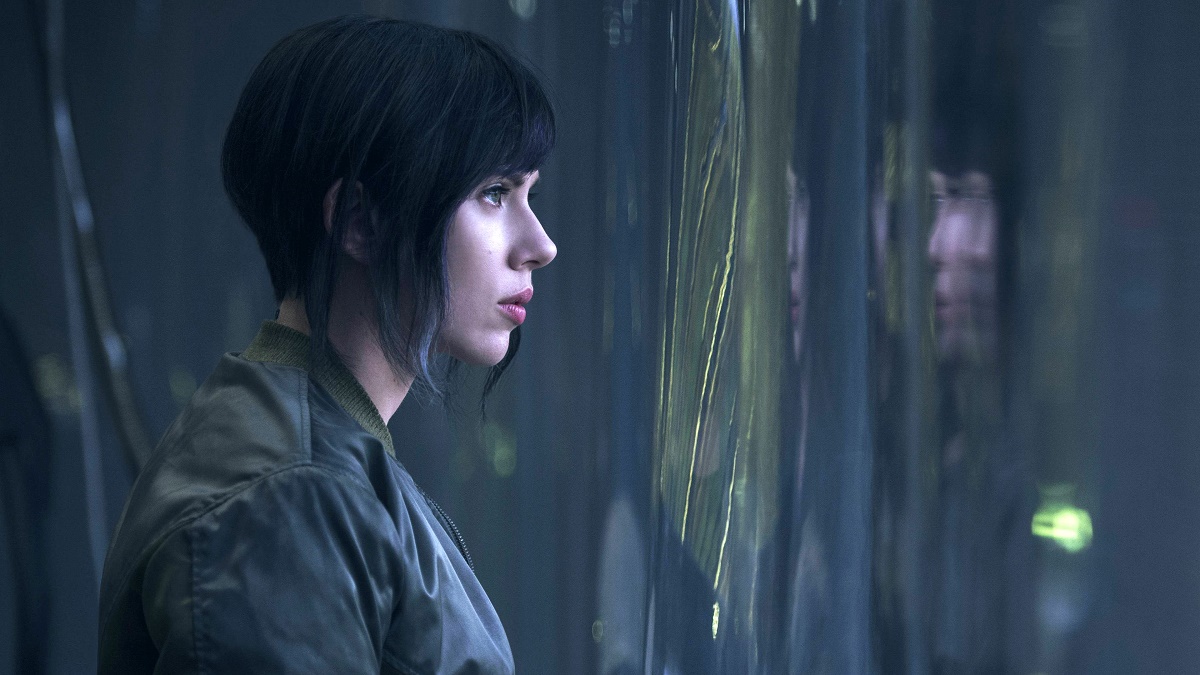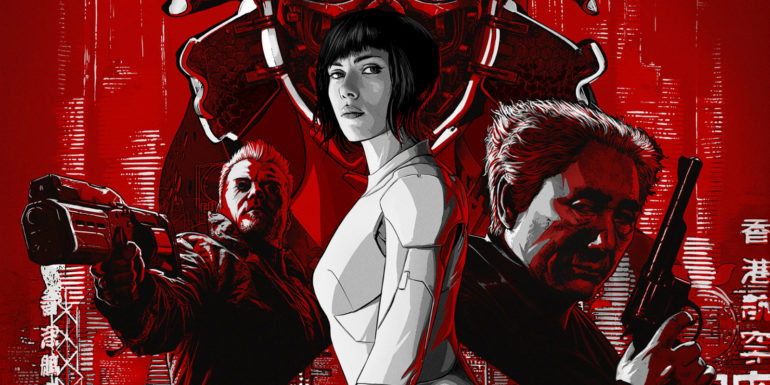Out in cinemas this week is the highly anticipated live-action iteration of the much-celebrated anime classic Ghost in the Shell. Starring Scarlett Johannson, Michael Pitt, Juliette Binoche and a cavalcade of international stars. What director Rupert Sanders and his team are hoping to break down is the impenetrable wall that seems to stop the success of western adaptations of Japanese properties. Is Ghost in the Shell the film that’ll finally end the loss of translation when Japanese storytelling is translated to western culture? This is just one of the questions going into this movie.
Ghost in the Shell is a sci-fi story set in the future where technology rules the world, even more than it does now. It follows the character known as the “Major” (Johannson) as she tries to take down a terrorist cell which has focused its efforts on bringing down Hanka Robotics, the leading artificial intelligence technology manufacturer. Major is part of a crack squad of soldiers from Section 9 an elite unit that deals with crimes in this futuristic world. Not only that, Major, in this world of cybernetic augments that blur the line between man and machine, is something of a wonder. She has nothing human left in her save for her brain and maybe her soul which has been dubbed a “ghost,” and this is one of the main plot threads throughout Ghost in the Shell. Major is resigned to the belief that she is not human and it’s fascinating to see what constitutes as human when so many aspects of humanity are called into question throughout the film. Sadly the film never fully capitalises on this theme, always ending a scene at the wrong moment, missing opportunities to explore the meaning of humanity. The story never delves as deep as it could, and it’s unfortunate because there’s a lot of potential untapped.

Compounding this issue is Scarlett Johannson who can’t sell this fascinating premise convincingly. Her supporting cast tries their best, and they all range from good to bad but Johannson had to handle the heavy lifting, and for me, she came off less robotic and more awkward in her delivery of lines and her interactions with characters within Ghost in the Shell. Johannson isn’t the only perpetrator of a poor performance in the film, though; the majority of the characters are forgettable, there are a few standouts, the ever faithful Batou (Pilou Asbæk) gives a lot of life to the scenes he is a part of. My personal favourite was Kuze (Pitt), the mysterious figure that Major and Section 9 have to take down due to his terrorist acts. He’s a bewitching figure that gives emotional weight to Major and the story as a whole. The rest of the characters, however, are never given as much material to work with, even actors of high calibre talent such as Juliette Binoche and Takeshi Kitano struggle with the material on offer.
There are other avenues that Ghost in the Shell does exceed in; the visuals are sublime. The world and the people populating it are a sight to behold, and every time there was something new to see I tried to take in as much as I could. What bolsters the visuals is an incredibly atmospheric score which is reminiscent of the original anime. The score adds to the otherworldly ambience, and it’s fantastic, easily one of the best parts of the film.
Ultimately Ghost in the Shell has to be two creatures; it has to hold up as a film on its own and at the same time give fans of the anime what they crave. Ghost in the Shell succeeds as its own film, providing a fresh perspective into a future that is becoming all too familiar. Sadly fans of the original may not find this to their taste with several omissions from the original tale that will infuriate hardcore fans. Head along if you’re curious, but buyer beware if you’re a fan of the source material and looking for a truly faithful adaptation.

